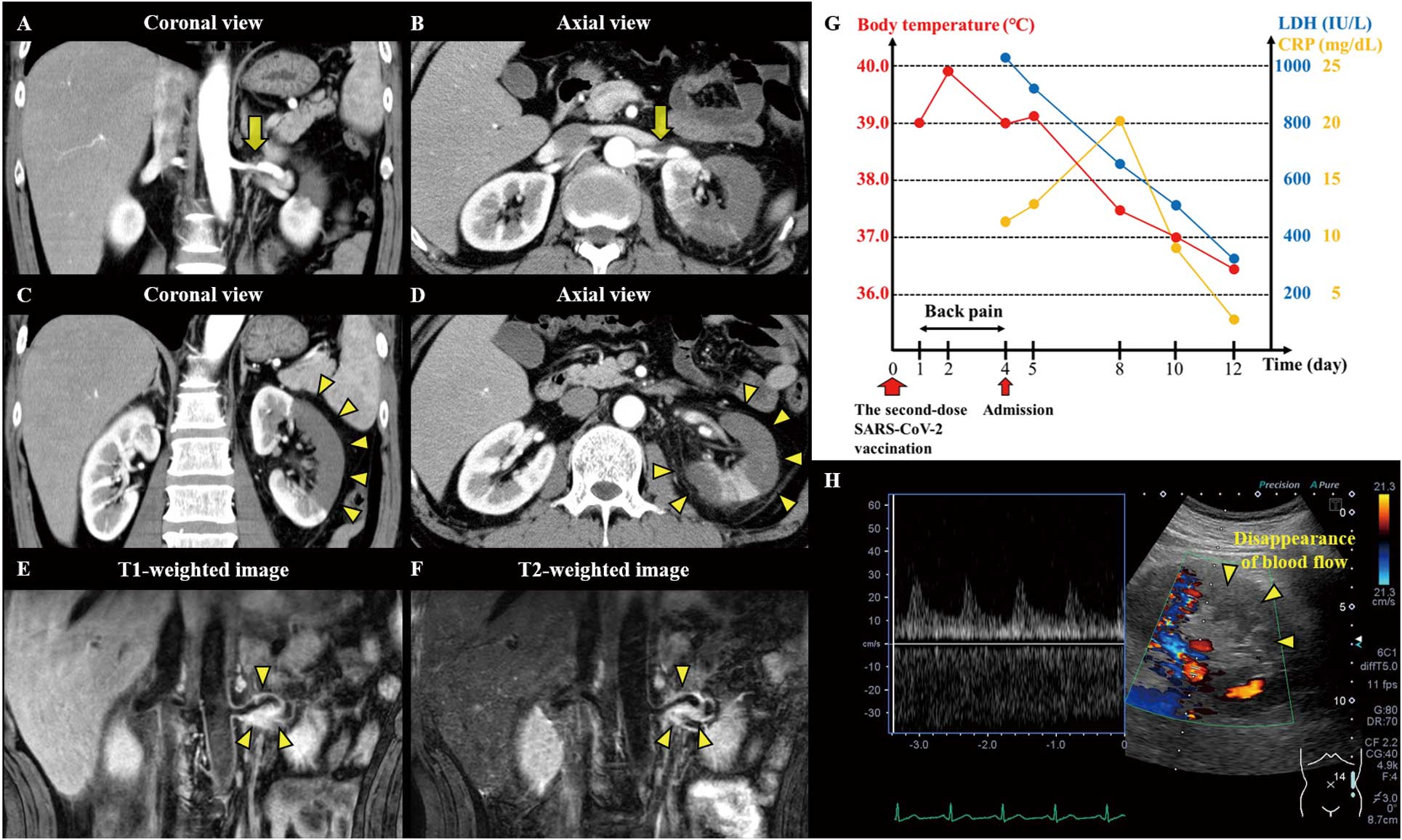Article ID: CJ-21-1050
Article ID: CJ-21-1050
A 48-year-old healthy man, who had received the first- and second-dose SARS-CoV-2 vaccine (BNT162b2 mRNA: Pfizer-BioNTech) 25 days and 4 days prior, presented with persistent high-grade fever and sudden-onset left-sided back pain for 3 days. Contrast-enhanced computed tomography revealed left renal infarction with thrombus in the mid-left renal artery (Figure A–D). Blood test, transesophageal echocardiography and gadolinium-enhanced cardiac magnetic resonance imaging (MRI) found no abnormalities, including coagulopathy, collagen or malignant disease, and cardiogenic thromboembolism. A 2-week ECG monitoring detected no arrhythmia. Although no signs of atherosclerotic degeneration or medium-vessel vasculitis were detected, abdominal MRI suggested a localized left renal arteritis (Figure E,F). Finally, the findings suggested that renal infarction could have been caused by thrombus formation at the site of localized renal arteritis. Intravenous heparin and acetaminophen were effective in preventing further fever and thrombotic events, and he was discharged without renal dysfunction (Figure G). Renal ultrasound before discharge confirmed no residual stenosis but decreased left renal blood flow remained (Figure H).

(A–D) Contrast-enhanced computed tomography shows left renal infarction (arrowheads) with thrombotic stenosis in left renal artery (arrows). (E) T1-weighted and (F) T2-weighted magnetic resonance imaging shows a high-signaling thickened vascular wall in the left renal artery, suggestive of arteritis (arrowheads). (G) Patient’s clinical course. (H) Ultrasound showing decreased blood flow due to left renal infarction.
A recent case series identified increased risk of arterial thromboembolism among 30 million people who underwent SARS-CoV-2 vaccination.1 Increased risks of immune-mediated disease and myocarditis after vaccination have been reported.2,3 Our case suggest that isolated renal arteritis with infarction could be potentially associated with SARS-CoV-2 vaccine-related immune-mediated disease. For the possibility of unknown SARS-CoV-2 vaccine-related adverse events, multimodal imaging can be useful to guide diagnosis and treatment. Although the benefits of SARS-CoV-2 vaccination are unarguably clear, its safety monitoring should be continued while accumulating rare vaccine-related adverse events.
None.